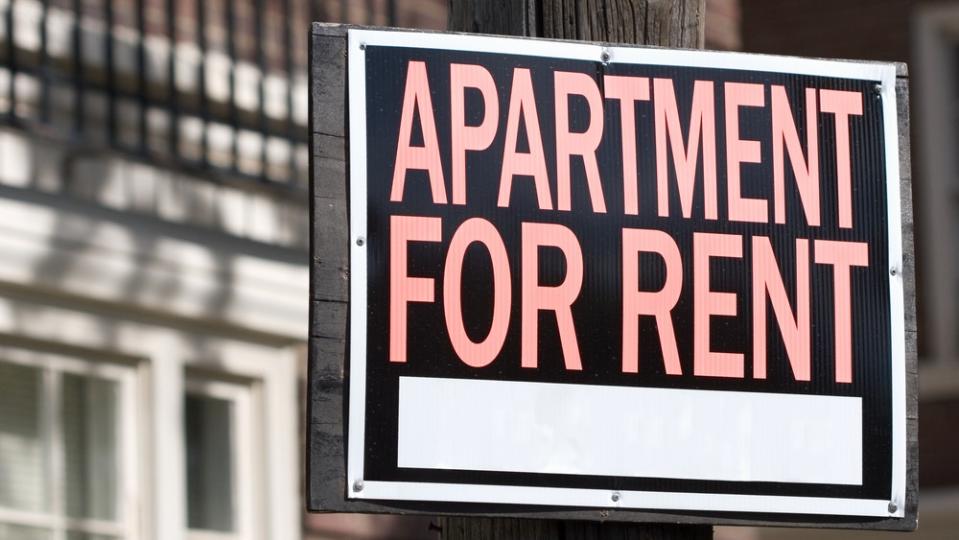BALTIMORE — Born into a family of devout Catholics, Marc Floto was almost destined to be an altar boy at his local church, the former Shrine of Our Lady of Perpetual Help in Baltimore County.
So when he was 5 or 6 years old, his parents “pretty much pushed” him to do just that. But they had no idea about the life-altering consequences that came with that commitment, said Floto, 62.
“When I was an altar boy, I used to go to the rectory … to get dressed in our robes and that, to get ready for Mass,” he said in an interview. “I don’t recall when, but things progressed from the priest touching me, to fondling me, amongst other things.”
Floto lives near Westminster and owns a towing business now; he’s married and has a son. But being abused as a child, he said, “caused turmoil every step of” his life. He chokes up when he explains the impact of what he endured, from persistent anger and trust issues to being overprotective of those he holds dear.
Like many survivors of clergy sexual abuse in Maryland, Floto was preparing last fall to sue the Archdiocese of Baltimore, but had to change course when the church declared bankruptcy. He is one of hundreds who has submitted a “proof of claim” form in the archdiocese’s case ahead of a Friday deadline for victims to add themselves to a list for future compensation.
Known as a “bar date,” the deadline is “really a survivor’s last chance to file against the bankrupt entity, which in this case is the Baltimore diocese,” said attorney Adam Slater, whose firm represents Floto and other victims. “I encourage anybody with a claim, or anybody who was sexually abused, to please come forward, because this is most likely your last chance.”
Slater called the midnight Friday deadline “part of the cruelty of the bankruptcy process” because it limits the period survivors have to pursue legal recourse, effectively sidestepping the groundbreaking law Maryland enacted last year that erased time restraints for abuse lawsuits in state court.
The Child Victims Act followed the release of a state attorney general report that said 156 clergy and other church officials tormented more than 600 children and young adults, dating to the 1940s. The abuse spanned Baltimore and the nine counties in Central and Western Maryland that make up the diocese’s jurisdiction.
Anticipating hundreds of lawsuits, the church chose to protect its assets and limit its liability by filing for bankruptcy Sept. 29, two days before the law took effect. Church officials said bankruptcy would allow the archdiocese to compensate all victims, rather than providing immense sums of money to a few, while continuing its mission.
The church’s decision meant survivors’ potential lawsuits had to be reconfigured into proof-of-claim forms and supporting documents. U.S. Bankruptcy Judge Michelle M. Harner set the May 31 deadline for such claims, requiring the archdiocese to publicize that date. The church advertised on news platforms and put the word out in its parishes, among other means.
Philip C. Federico, an attorney who is representing dozens of survivors, told The Baltimore Sun that he is concerned that notice won’t reach all victims, arguing the archdiocese’s efforts to cover up widespread abuse make it more difficult to reach those impacted.
“There’s no database of survivors of sexual abuse by members of the Archdiocese of Baltimore’s clergy,” Federico said. “There’s really no way to give all the survivors adequate notice.”
Survivors’ attorneys will attempt to add an avenue for people to file late if they have a “reasonable” reason for missing the deadline, such as “people who live abroad or people who are in the service,” Federico said. “But that’s a heavy burden to overcome.”
As of May 20, about 320 claims had been filed, but several law firms had yet to file hundreds, said Paul Jan Zdunek, chair of the committee of survivors representing all victims in the bankruptcy case.
“There will probably be closer to 600 to 1,000 claims, based on what we’re hearing anecdotally,” Zdunek told The Sun.
Almost all of the hundreds of abuse claims submitted thus far have been shielded from public view.
Broderick Miller, who said a deacon raped him and introduced him to heroin, leading to a lifetime of addiction and related arrests, filed his claim publicly. While claims filed confidentially are kept from the public, they are reviewed by attorneys and experts in the case.
Zdunek, who said he was sexually abused as a child by a Boy Scout leader, a Catholic middle school teacher and a member of a choir connected to the school, harked back in an interview to a recent conversation with a friend who was abused alongside him.
“He didn’t want to file because he was worried about what his family would think, his friends,” Zdunek said. “I want to assure everybody that this is completely anonymous. Nobody has to know. Their name won’t be out there.”
Zdunek himself was in the process of completing his claim with a lawyer when he spoke to a reporter. He said a lawyer can make the process seamless, either walking a survivor through the steps of completing a claim form or filling the document out for their client.
“The most difficult part of it is reliving and remembering the abuse because it does ask certain pieces of information about the abuse: When, where, who?” Zdunek said. “It’s more emotional than it is painful from an administrative standpoint.”
As survivors prepared their claims, attorneys in the case worked to determine how much money the archdiocese and its insurers will contribute to eventually compensate survivors. The survivors committee also has discussed with the church measures to prevent future sexual abuse of children, which will be part of the final settlement.
That process of determining how much the church and insurance companies will pay is expected to ramp up during forthcoming mediation, or “Phase 2” of the bankruptcy case, as attorney Elisha Hawk called it.
“Phase 2 is the longest, and quietest, and sometimes the most frustrating for survivors because it is confidential,” said Hawk, whose firm represents survivors in Maryland and has participated in bankruptcy cases involving other archdioceses, in an email. “In the coming days, there will be a joint motion filed to appoint a couple of mediators with the goal of working toward mediation.”
Zdunek and Jonathan Schochor, another attorney who represents victims in the case, predicted that mediation would begin over the summer.
After mediation, the survivors’ committee will come up with criteria for how to categorize abuse claims, said Hawk, adding that “all survivors will be able to see [the criteria] and vote on that before the court approves it.”
Schochor said experts who are “forensically inclined” will be brought in later to evaluate the claims, determining how much money each person’s experience is worth.
“The claims,” he said, “will be placed into tiers.”
——–
Signup bonus from





